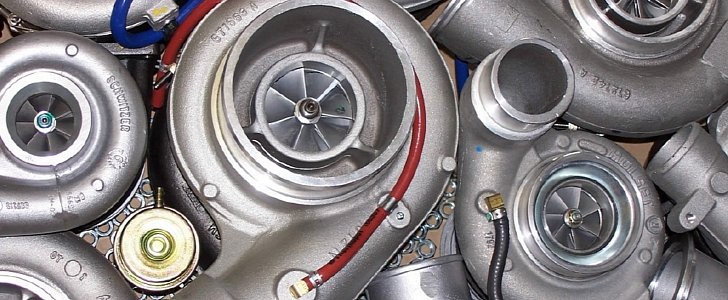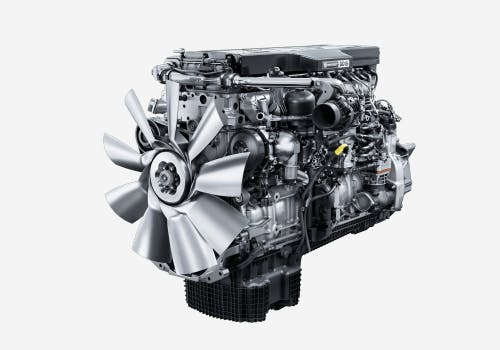Obtain the Perfect Fit with Engines For Africa's Diverse Choice
Check Out a Variety of Engines for Every Vehicle and Function
The automobile landscape is significantly intricate, with a diverse array of engine types designed to satisfy details efficiency and effectiveness needs throughout various vehicle classifications. From the high-performance engines that power cars to the fuel-efficient alternatives customized for daily commuting, the choices are vast and varied. Furthermore, durable engines serve the needs of work automobiles, while environment-friendly alternatives are obtaining grip in the quest of lasting transport. Comprehending these differences is critical for making educated decisions, particularly as arising modern technologies continue to form the future of automotive design. What implications might these developments hold for manufacturers and consumers alike?
Kinds Of Automotive Engines
Automotive engines can be classified into numerous distinct types, each designed to satisfy details efficiency and effectiveness requirements. One of the most typical groups consist of inner burning engines, electric engines, and hybrid systems.

Electric engines, on the other hand, operate on electrical power kept in batteries, supplying instantaneous torque and zero emissions. These engines are becoming progressively popular because of improvements in battery modern technology and the expanding emphasis on sustainability.
Crossbreed systems integrate both interior burning and electrical engines, enabling automobiles to optimize fuel efficiency and decrease discharges by seamlessly switching over between source of power. Each engine kind presents its disadvantages and advantages, affecting aspects such as automobile design, planned usage, and market need. Understanding these differences is vital for manufacturers and customers alike when selecting the appropriate engine for their specific needs.
Efficiency Engines for Sports Cars
Efficiency engines for sports cars and trucks are especially engineered to supply enhanced rate, dexterity, and power, setting them in addition to standard automotive engines. These engines frequently utilize sophisticated modern technologies such as turbocharging, turbo charging, and variable valve timing to make best use of efficiency and responsiveness.
Commonly, efficiency engines are made with higher compression proportions, which permit higher power extraction from fuel. This leads to excellent horse power and torque figures, allowing fast acceleration and greater full throttle. Furthermore, the lightweight materials made use of in these engines, such as aluminum and carbon fiber, add to decreased general lorry weight, enhancing handling and maneuverability.
Engine arrangements like V6, V8, and even hybrid systems prevail in performance cars, each offering unique benefits in terms of power delivery and driving characteristics. The adjusting of these engines is likewise important; numerous producers optimize the engine monitoring systems to supply an exciting driving experience, commonly consisting of sporting activity settings that readjust throttle action and gear shifts.
Effective Engines for Daily Commuters
In the realm of day-to-day travelling, efficient engines play an important duty in enhancing fuel economic climate and reducing emissions while offering trustworthy performance. As metropolitan populations expand and ecological problems increase, the demand for lorries furnished with effective powertrains has actually surged.
Modern engines made for day-to-day commuters typically include modern technologies such as turbocharging, direct fuel shot, and hybrid systems. Turbocharging improves engine effectiveness by requiring more air into the combustion chamber, allowing for smaller sized, lighter engines that do not endanger power output. Direct fuel shot improves gas atomization, causing better combustion and raised efficiency.
Crossbreed engines, combining interior burning with electrical power, more boost fuel economy, especially in stop-and-go web traffic, where conventional engines can suffer from ineffectiveness. Electric electric motors aid during acceleration and can run independently at low rates, lowering general gas usage.
Furthermore, advancements in engine administration systems and lightweight products add substantially to effective engine design. By focusing on performance, sturdiness, and environmental sustainability, suppliers proceed to supply engines that not just fulfill the needs of everyday travelling yet additionally straighten with international initiatives to lower carbon footprints.
Heavy-Duty Engines for Job Automobiles
Heavy-duty engines for job lorries are regularly engineered to supply phenomenal torque and reliability under demanding problems. These engines are designed to perform in environments where typical engines may falter, such as building and construction websites, logging operations, and farming setups. The main emphasis of sturdy engines is their capacity to produce high degrees of power while keeping toughness over prolonged periods of operation.
Normally, durable engines utilize innovative materials and robust construction methods to hold up against the roughness of heavy workloads. Functions such as strengthened cylinder blocks, boosted air conditioning systems, and progressed gas shot technologies add to their efficiency. These engines usually run at reduced RPMs, which helps to maximize fuel effectiveness while offering the essential power for hauling look these up and carrying.
In enhancement to mechanical toughness, durable engines are often furnished with sophisticated electronic control units (ECUs) that handle efficiency, exhausts, and diagnostics. This combination enables far better surveillance and maintenance, ensuring that job cars continue to be reliable and operational.
Inevitably, heavy-duty engines are a vital component in the efficiency of different sectors, giving the required power and reliability to take on the toughest of jobs.
Eco-Friendly Engine Options
The expanding emphasis on sustainability has led to the growth of environmentally friendly engine choices that focus on decreased discharges and enhanced fuel efficiency. These engines are made to reduce the ecological impact of lorries while still providing the performance and reliability anticipated by customers.
Amongst the most noteworthy environmentally friendly choices are hybrid and electric engines. Hybrid engines combine standard inner combustion engines with electric propulsion, permitting decreased fuel usage and lower greenhouse gas exhausts. Electric engines, on the various other hand, run entirely on battery power, creating no tailpipe discharges and adding to cleaner air quality.
One more promising development is the advancement of biofuel engines, which make use of sustainable sources, such as plant materials, to power cars (Engines For Africa). By utilizing biofuels, these engines can reduce reliance on fossil fuels and her response lower general carbon impacts

As the automobile sector develops, environment-friendly engine options will play a vital role in driving the transition towards more sustainable transport solutions.
Conclusion
The vehicle market uses a varied range of engines made to fulfill various vehicle requirements and objectives. From high-performance engines that boost cars capabilities to efficient designs focusing on fuel economy for daily commuters, each kind offers a certain function. Sturdy engines provide to durable job cars, while environmentally friendly choices, such as electric and biofuel engines, promote sustainable transportation. This detailed range makes sure that all driving demands are attended to, adding to innovations in auto modern technology and environmental stewardship.
